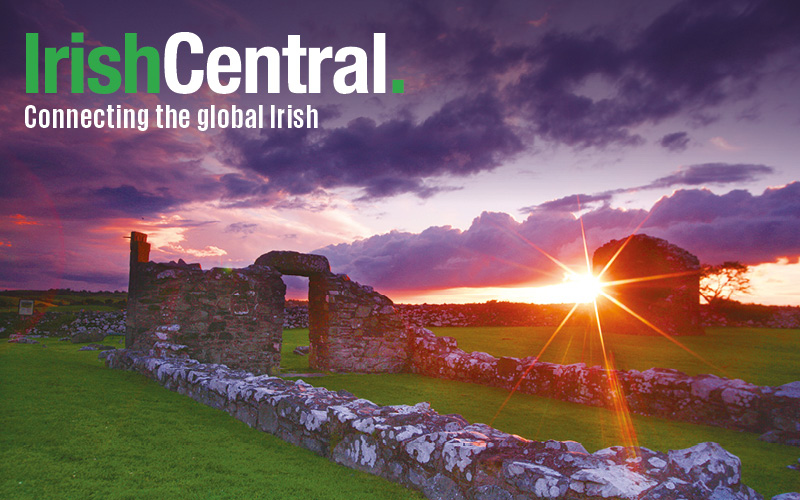Irish Taoiseach Enda Kenny believes a provision must be included in the UK’s Brexit deal which will allow Northern Ireland to easily rejoin the European Union in the event of Irish reunification.
Speaking at a press conference in Brussels on Thursday, the Irish leader stated that Ireland wants the language within the Brexit agreement to allow for Northern Ireland to easily return to the bloc in the same “seamless fashion” that East Germany was allowed to join the EU when the Berlin Wall fell and it reunited with West Germany.
Any deal, he believes, must take into account the terms of the Good Friday Agreement and the possibility of a United Ireland in the future, which would see Northern Ireland needing to return to the EU.
“In other words, that in such future time, whenever that might be, were it [reunification] to occur, that the north of Ireland would have ease of access to join as a member of the European Union again … We want that language inserted into the negotiated treaty, the negotiated outcome, whenever that might occur,” Kenny said.
The Taoiseach (Irish Prime Minister) was speaking in Brussels following a meeting with European commission president, Jean-Claude Juncker, and the EU’s chief Brexit negotiator, Michel Barnier, in which they discussed the impact the UK’s departure from the EU on Ireland and the ways in which a hard border could be avoided between the Republic of Ireland and Northern Ireland when the exit finally takes place.
“We don’t want to have hard borders between Northern Ireland and the Republic, we don’t want to have the Good Friday agreement to put under risk, and we want land borders to be open as possible,” Juncker said.
Read more: Enda Kenny expected to step down as Irish Prime Minister after whistleblower revelations
While Kenny stated that no hard border would be put in place, with Brexit details not officially decided, the nature of the relationship between Ireland and our closest neighbor is still up in the air.
“We had a discussion particularly about the border and the peace process. I made the point that when the old style of the border existed you had sectarian violence,” Kenny said of the meeting with Barnier.
“We agreed with the British government and the British government agree with us: there should not be a return to the hard border of the past and indeed there won’t be. This is a political challenge as distinct from any technological issue.
“Obviously Michel Barnier and his taskforce can’t deliberate on an outcome until [article] 50 is triggered and until we know with clarity what it is the British government is talking about in terms of future relationships with the EU because that will have an impact on trade with Ireland.”
Kenny emphasized, however, that Ireland is still very much an EU country, stating that the country sits on the European side of the negotiating table, despite the good standing relations between Ireland and the UK.
En route Brussels to meet BelgianPM & Pres Junker of the Commission to discuss Brexit. These discussions will become serious in months ahead
— Enda Kenny (@EndaKennyTD) February 23, 2017
Despite the Leave campaign winning a UK majority in June’s referendum with 52%, Northern Ireland voted by 56% to remain in the EU, a stance also held by the majority in Scotland, and in England’s capital city London. Legal challenges have since been mounted in Northern Ireland and London regarding their unwillingness to leave the EU, and talk has increased of a second independence referendum in Scotland which would allow them to decide for themselves whether to remain a member of the EU of not if passed.
In October 2016, British Prime Minister Theresa May confirmed that the UK will trigger Article 50 of the EU Lisbon Treaty (the move that will officially begin the divorce with the EU) by the end of March 2017, with plans to complete their departure within two years of that date.
Read more: Why Brexit means Irish unity is now inevitable
Kenny now believes, however, that triggering of Article 50 may be delayed, with the assumed plans to begin proceedings at the European council meeting on March 9 and 10 postponed even further.
“We had expected the prime minister was going to move article 50 on a particular date; I think that might be delayed a little,” he said.
Taoiseach Enda Kenny says he has an agreement with @theresa_may govt that 'there'll be no return to border of past' after #brexit @rtenews pic.twitter.com/Q8cJBrC1Y8
— Conor McMorrow (@ConorMcMorrow) February 15, 2017
During the press conference, the Irish leader avoided questions about his own future in Irish politics and whether he will still be Taoiseach when Brexit comes into play. There have been calls for the Taoiseach to resign over his handling of a recent controversy involving a Gardaí (Irish police) whistleblower and rumors that he is set to step aside in April following his St. Patrick’s Day trip to the White House.
Juncker was also forced to deflect questions about his own possible resignation as a result of the lack of support other EU leaders have shown for his vision of the Union.
“I will not resign, I will bring my mandate to an end, that is 3 November 2019, but you knew that anyway,” he said.
Should a provision be included in the Brexit deal for a future United Ireland? Tell us your thoughts in the comments section.




Comments